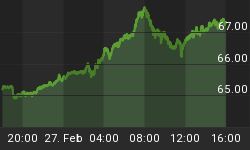My GDP-weighted ISM PMI Employment (manufacturing and non-manufacturing combined) in October bounced to 53.3 after contracting for the first time in 17 months in September and falling to below 50 - the neutral level.
In the past a fall below 50 not only coincided with a peak in the Bureau of Labor Services' non-farm payroll employment but also coincided with the official peaks of previous business cycles that were followed by recessions, according to the NBER.

Sources: FRED; ISM; Plexus Asset Management.
My research indicates that consumer confidence is an excellent indicator of the direction in which private employment is heading and leads the latter by approximately seven months. This is especially true regarding the peaks, as in the past cycle lows in consumer confidence coincided with cycle lows in the employment situation, except in 2009 when consumer confidence turned seven months before employment.
Consumer confidence has been in a downtrend since June this year. The historical relationship therefore indicates that should the downtrend continue, BLS non-farm private payrolls are likely to turn lower by January next year. That would also mark the start of the next recession in the U.S.

Sources: FRED; ISM; Plexus Asset Management.
Please note that the boxes in blue indicate official peaks of previous business cycles that were followed by recessions, according to the NBER.

Sources: FRED; ISM; Plexus Asset Management.
But what are the markets saying? The smoothed annualized growth rate of Robert Shiller'sten-year trailing, inflation-adjusted PE ratio or PE10 leads the smoothed growth in BLS non-farm private payrolls by approximately six months. The smoothed annualized growth rate of the PE10 fell 2.1% in September, improved somewhat to -0.7 in October, but resumed its fall in November to -1.3%. Yes, there were slight falls in the past while non-farm private payrolls were expanding but falls of this magnitude were always followed by a contraction in payrolls. The magnitude of the fall in the smoothed annualized growth rate in September indicates to me that the stock market is anticipating a contraction in non-farm private payrolls by March next year.

Sources: FRED; ISM; Plexus Asset Management.

Sources: FRED; ISM; Plexus Asset Management.
It is clear to me that to avoid a recession in the U.S. in the first quarter of 2012 the FOMC needs to do something spectacular without hesitation. It can only be Q3!

Sources: FRED; ISM; Plexus Asset Management.















